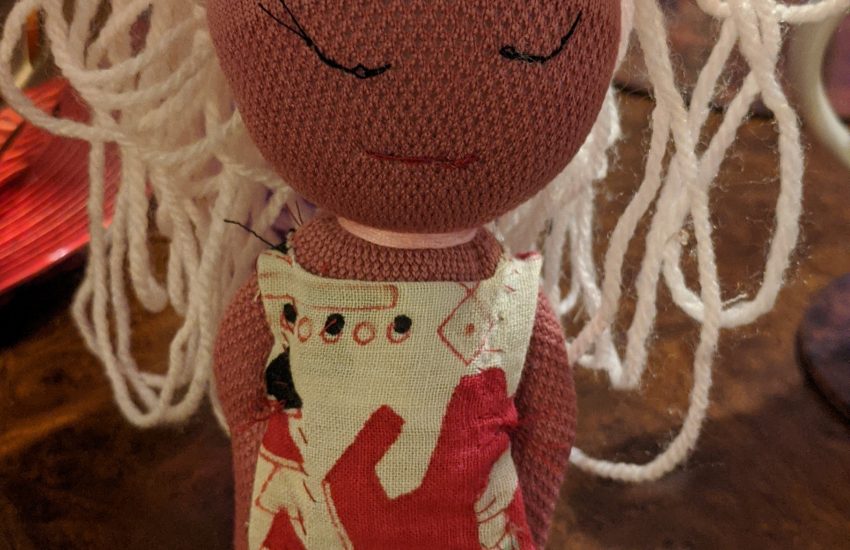[1) Knowing your story, 2) Dazzling yourself, 3) A place of OKness]
In The Core of Belonging, an extraordinary episode on the SoundsTrue podcast, Zen priest Reverend angel Kyodo Williams defines belonging as something which is internal not external.
Belonging belongs to you
Rev angel Kyodo williams
Normally, someone outside of us decides whether we belong, how we belong, and to whom we belong, be it a spiritual leader, a family member, a workplace colleague, a friend in a group and so on. We then internalise their decisions and believe them as if they are facts, as if they are true. And, because connection is a reward in and of itself, the idea of being disconnected, of not belonging somewhere, or to someone, is completely devastating, causing pain which may last a lifetime.
We are shaped by our sense of belonging, whether we like it or not, and by the culture of which we are, or are not, a part. And, even though culture is learnt, not inherited, it influences our biology, our behaviour, and our individuality. This is why the word culture is often used interchangeably with nation, race, ethnicity, identity and community.
In other words, the stories we tell ourselves and the stories other people tell us about ourselves have the power to change us at a cellular level, which is why we must be in charge of writing our own stories, they belong to us. No one else should have the power to change us through story and defining who we are.
Rev angel says: I’m black, I’m female, I’m queer, I have a disability, I’ve got all the little markers for being out group, marginalized, oppressed, and all of the things, and so, she developed a practice in which she could belong to herself which was not about other people defining who she was, or what she could do, or what she was allowed to have, or where she could be. We have been taught that somehow our belonging is predicated on what someone else says. And I think that that is faulty and we need to return to ourselves and be able to have that… and that is most essential for people that feel themselves marginalized in all sorts of ways.
She found that the practice she developed consistently allowed people to get underneath the wounds and ways that families, communities, societies and institutions did not create a space of belonging for them. As once we acknowledge to ourselves the hurt that we carry from not belonging, a lot of the pain we carry dissipates. It is a self-practice of releasing ourselves from the dynamic in which we’re wanting something from the other person that we can’t necessarily ever get.
The practice itself is very simple but so powerful. We sit down and take a moment to breathe into the lower belly, by thinking about any a point just below the navel and refer to it in our minds as the point, and then we just breathe. Naturally, our minds will wander so we just take another breath and take our minds back to point. We don’t judge, or name, or do anything, we just take another breath and return to point. Psychologically it is freeing to sit with a busy mind which we accept and not judge. Physiologically, by breathing into our bodies and in particular our parasympathetic nervous system, we are signally to our bodies that we are okay. We are cultivating a sense of OKness.
It might take some time, and there may be some resistance or tightness, at which point we step back and be gentle with ourselves and relax and try again later. But with a couple of minutes each day, we can establish a practice of recognising our personal inherent internal OKness. This is what Rev angel calls it. It is a reference point to which each person can return and from that point of reference, they can decide what is okay and what isn’t in any given situation: I’m OK, this is OK, this being is okay, this person is okay, this moment is okay.
Rev angel says as we practise we will get to a point that even when there is sadness and circumstances outside of someone’s skin, there still is, a sense of residual OKayness. With practise, we generate a feeling and a quality of belonging to ourselves and we have a practice that is entirely our own so that when we go out into the world and things feel shaky – say, someone is threatening our sense of belonging to a group or to a situation, an institution, a sitting group – we still have sense of belonging to ourselves with us all the time. It doesn’t leave us because it is us.
Rev angel says that when people ask her: How do I recognise my OKness? How do I know I am doing it right? She tells them that we just know, instinctively, like falling in love, no one tells us we are in love, we just know how we feel. This is because the only truth is in the body, the body we inhabit.
The body is where we live and from that physiological reference point, we can clarify the externals goings on as external and see what is happening internally, and instead of responding to external events with stress and fear and resistance, there is an actual point of reference: How is this for me? And, everything else is distraction.
We belong to ourselves. It is inherent and it cannot be taken away, and from there, we are free to tell our stories from a place of OKness, our way, for our own benefit, and in this way, we benefit us all, everyone.







2 comments